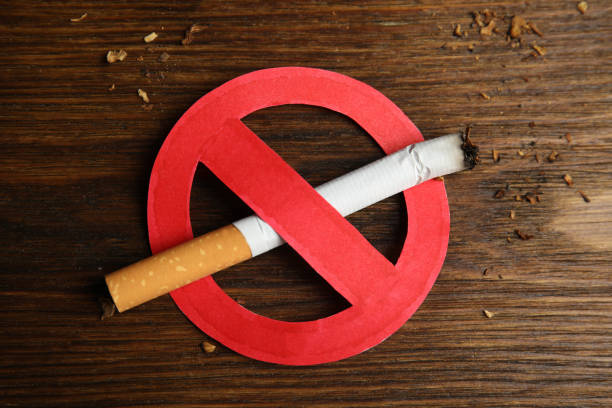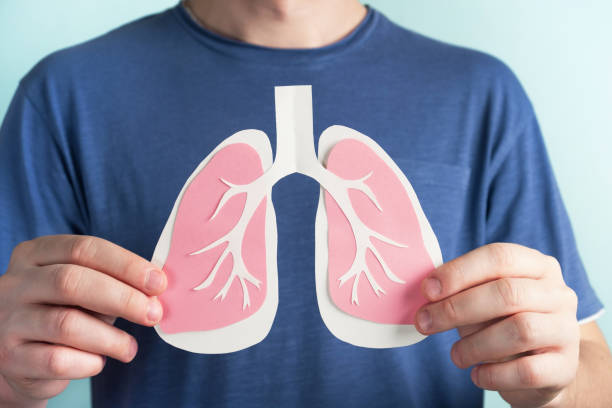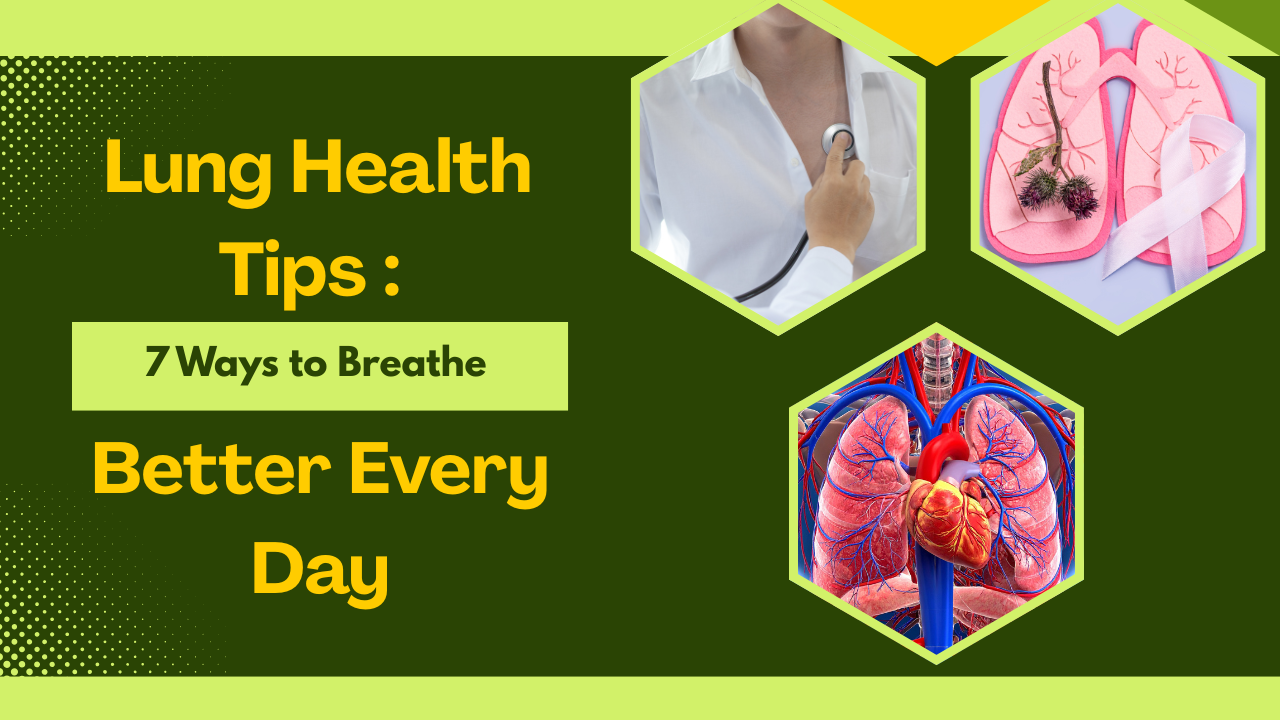Every day, our lungs quietly work behind the scenes, bringing in the oxygen we need and clearing out harmful carbon dioxide. With over 20,000 breaths taken daily, these vital organs never stop supporting our body’s functions. Despite this, we often forget how important it is to take care of them.
Our lungs are not indestructible. They can be affected by pollution, illness, aging, and poor lifestyle choices. Without proper care, their function can decline over time, leading to reduced energy, breathing issues, and long-term health problems.
Lung health matters for everyone—regardless of age, fitness level, or smoking history. Being mindful of how we treat our lungs can make a big difference. Regular exercise, avoiding pollutants, staying smoke-free, and practicing deep breathing can all support lung strength. Protecting your lungs now helps ensure better breathing and overall well-being for years to come.
In this detailed guide, we’ll explore the top 7 tips to keep your lungs healthy, boost your energy levels, and improve your overall quality of life.
Top Lung Health Tips For Better Breath
🌬️ Quit Smoking — The First, Most Crucial Step

There’s no way to sugarcoat it—smoking is the most harmful habit for your lungs. Whether it’s cigarettes, cigars, or vaping, inhaling toxic chemicals irritates the airways and inflames lung tissue. This constant exposure puts you at risk for serious health issues like chronic bronchitis, emphysema, and lung cancer.
Smoking harms the tiny air sacs in your lungs called alveoli, which are responsible for the exchange of oxygen and carbon dioxide. When these delicate structures are damaged, your lungs can’t function properly. This damage worsens over time and can’t be reversed.
One of the most important lung health tips is to avoid or quit smoking altogether. Protecting your lungs from harmful substances is key to long-term respiratory health. Whether you’re trying to quit or helping someone else, support, awareness, and healthier habits can make a real difference in preserving lung function.
💡 What You Can Do:
Decide to quit now — even if you’ve tried before. Each attempt strengthens your ability to succeed.
Use tools like nicotine replacement therapy, counseling, or smartphone apps.
Surround yourself with support. Share your goals with loved ones, or join online communities.
Avoid triggers — if stress or socializing tempts you to smoke, replace that urge with healthier habits like breathing exercises or chewing gum.
Remember: within 24 hours of quitting, your lungs already begin healing. In a year, your risk of lung disease is cut in half. The sooner you quit, the better your lungs can recover.
🏃♀️ Move Your Body: Exercise Boosts Lung Capacity
Exercise benefits more than just your heart or weight—it plays a key role in keeping your lungs strong and healthy. Physical activity boosts your breathing rate, helping your lungs take in more oxygen and release carbon dioxide more efficiently.
Regular movement also strengthens the muscles that support your breathing, such as the diaphragm and intercostal muscles. Over time, this improves your lung capacity and endurance, making everyday tasks like walking or climbing stairs feel easier.
One of the best lung health tips is to stay active. Whether it’s walking, swimming, cycling, or light aerobic workouts, consistent exercise keeps your lungs working at their best. Even gentle movement can support better breathing and improve overall lung performance. Making exercise part of your routine is a simple yet powerful way to protect and maintain your respiratory health.
Aerobic activities like walking, cycling, swimming, and even dancing can:
Improve your lung capacity.
Boost circulation, helping oxygen move efficiently through your body.
Increase stamina and reduce breathlessness over time.
🏋️♂️ Simple Habits to Start:
Aim for 30 minutes of moderate exercise five days a week.
Include some high-intensity intervals (if you’re able) — this challenges your lungs to work harder.
Practice breathing through your nose during workouts to filter and warm air.
If you have a condition like asthma or COPD, consult your doctor about a customized plan.
Staying physically active also helps control weight, another factor affecting how efficiently your lungs can expand and contract.
🧘 Practice Deep Breathing and Lung Exercises

Many people don’t use their lungs to full capacity. Instead of breathing deeply, we often take shallow breaths that only fill the upper chest. This habit limits oxygen intake, which can leave you feeling tired, anxious, and even cause tightness in the chest and shoulders.
Deep breathing helps your lungs work more effectively. When you inhale fully, your lungs expand completely, allowing for better oxygen exchange and helping remove more carbon dioxide from your body. This not only improves lung function but also supports mental clarity and calmness.
One of the simplest lung health tips is to practice deep breathing every day. Try slow, controlled breaths using your diaphragm—breathe in through your nose, let your belly rise, then exhale slowly through your mouth. This easy habit can improve lung strength, lower stress, and support better overall respiratory health with just a few minutes of daily focus.
🌿 Try These Daily:
Diaphragmatic breathing (belly breathing): Sit or lie down comfortably. Inhale deeply through your nose, expanding your stomach (not your chest), then exhale slowly through pursed lips.
Box breathing: Inhale for 4 counts, hold for 4, exhale for 4, hold for 4. Repeat for several rounds.
Pursed-lip breathing: Useful during physical activity or shortness of breath — breathe in slowly through your nose, then exhale through pursed lips (like you’re blowing out a candle).
Over time, these techniques not only expand your lung capacity, but also help you control your breath when you’re anxious or short of breath.
🏠 Keep Your Air Clean — Indoors and Outdoors
Even if you don’t smoke, your lungs can still suffer from poor air quality. Exposure to pollutants, dust, mold, and chemicals in your environment can irritate the lungs and weaken their function over time. Breathing in these harmful particles can lead to inflammation and long-term respiratory problems.
Clean air plays a major role in protecting your lungs. Everyday household items like cleaning sprays, air fresheners, or even dust from carpets can negatively impact your breathing. Outdoor pollution, construction dust, or secondhand smoke also add to the burden your lungs face daily.
One of the key lung health tips is to reduce your exposure to airborne irritants. Keep your home well-ventilated, use air purifiers, avoid smoking areas, and wear a mask in polluted settings. Protecting your lungs from harmful air is an easy but important step toward better respiratory health and overall well-being.
🧹 Tips for Cleaner Air at Home:
Open your windows regularly to circulate fresh air (when outdoor air quality is good).
Vacuum and dust your home weekly to prevent buildup of allergens.
Use an air purifier — especially if you live in an urban area or near factories.
Avoid synthetic air fresheners, incense, and strong cleaning products.
Use exhaust fans while cooking or bathing to reduce humidity and airborne particles.
🌫️ On Days With Poor Outdoor Air Quality:
Check your local air quality index (AQI) before going out.
Avoid outdoor activities when pollution or pollen counts are high.
Wear a high-filtration mask (like N95) if you must be outdoors in heavy smog.
Protecting your lungs from environmental toxins is just as important as quitting smoking or exercising.
💧 Stay Hydrated — Water Keeps Airways Clear

Water does more than keep you hydrated—it’s essential for healthy lungs. Your lungs are lined with a thin layer of mucus that helps trap dust, germs, and other particles you breathe in. This protective lining relies on proper hydration to function effectively.
When you’re not drinking enough water, the mucus in your lungs becomes thick and sticky. This makes it harder for your lungs to clear out irritants, increasing the risk of congestion, infections, and breathing discomfort. Staying hydrated helps keep this mucus thin and easy to expel.
One of the most overlooked lung health tips is to drink plenty of water throughout the day. Hydration supports easier breathing, helps prevent buildup in the lungs, and keeps your respiratory system working smoothly. Sipping water regularly is a simple but powerful way to protect your lungs and support overall health.
🚰 Hydration Tips:
Drink 6–10 glasses of water per day. If you’re sweating, sick, or exercising, drink more.
Add fruits like lemons, oranges, or cucumbers to your water for taste and added vitamins.
Avoid too much caffeine or alcohol, which can dehydrate you.
Hydrated lungs are efficient lungs. Thinner mucus means better filtration, clearer airways, and easier breathing.
🥗 Eat for Lung Power — Antioxidants, Omega-3s, and More
What you eat has a direct impact on your lungs, just like it does on your heart or immune system. A balanced diet filled with fruits, vegetables, whole grains, and healthy fats helps reduce inflammation and supports strong, healthy lung tissue.
Certain foods are especially helpful for lung health. Leafy greens, berries, nuts, and foods rich in omega-3 fatty acids can help your body handle environmental stress and reduce irritation in the airways. These foods also boost your immune system, making it easier to fight off infections that could affect your lungs.
One of the smartest lung health tips is to focus on eating fresh, whole foods while avoiding processed or fried items. A nutrient-rich diet gives your lungs the support they need to function at their best. By making simple changes to what you eat, you can protect your breathing and improve your overall health.
🥦 Nutritional Heroes for Your Lungs:
Leafy greens (spinach, kale) – Rich in antioxidants and iron.
Citrus fruits (oranges, lemons) – High in vitamin C to boost immunity.
Fatty fish (salmon, mackerel) – Full of omega-3 fatty acids, which help reduce airway inflammation.
Nuts & seeds (walnuts, flaxseeds) – Packed with magnesium and healthy fats.
Garlic and turmeric – Natural anti-inflammatory foods that benefit respiratory health.

Also try to:
Limit processed foods, especially those with trans fats and artificial additives.
Avoid excessive salt, which can cause fluid retention and make breathing harder.
Reduce dairy if it makes you phlegmy — though not everyone is affected the same way.
Feeding your body well means giving your lungs the nutrients they need to thrive.
🩺 Get Regular Check-ups and Preventive Care
Your lungs are hardworking organs, but they don’t always give early signs when something is wrong. Conditions like COPD or lung cancer can develop slowly and may not show clear symptoms until they are in a serious stage. This makes early detection difficult and treatment more challenging.
Because of this, paying attention to your lung health before problems arise is very important. Regular check-ups, especially if you have a history of smoking or exposure to pollutants, can help catch issues early. Don’t ignore signs like ongoing cough, shortness of breath, or chest discomfort.
One of the most important lung health tips is to focus on prevention. Live a smoke-free life, avoid polluted air, eat a healthy diet, and stay physically active. These simple steps can go a long way in protecting your lungs and maintaining your overall well-being for years to come.
🩻 Make It a Habit To:
See your doctor annually, especially if you have a family history of lung disease, asthma, or if you’ve ever smoked.
Request a lung function test (spirometry) if you experience persistent coughing, wheezing, or breathlessness.
Stay updated on vaccines – particularly flu shots, pneumonia vaccines, and COVID-19 boosters, which protect your lungs from serious infections.

Early detection can mean the difference between effective treatment and lifelong complications.
🎁 Bonus Tip : Laugh, Stand Tall, and Breathe Freely
Sometimes the best support for your lungs comes from simple, everyday actions.
Laugh often: Laughter is more than just good for the soul—it’s great for your lungs too. It activates the diaphragm, encourages deep breathing, and helps clear out stale air, making room for fresh oxygen. It’s one of the easiest and most enjoyable lung health tips you can try.
Maintain good posture: Slouching compresses your lungs and limits their ability to expand fully. Make it a habit to sit or stand tall with your shoulders back and chest open. This simple adjustment supports better airflow and healthier breathing.
Stretch regularly: Tight chest and back muscles can restrict your breathing. Incorporate chest-opening stretches or yoga poses like cobra and upward dog into your routine. These movements help your lungs expand fully and promote smoother, deeper breaths. Among the many lung health tips, regular stretching is an effective way to support better breathing and lung performance.
A joyful, upright body breathes better.
🗓️ A Daily Routine for Healthy Lungs
Want to put all these tips into practice? Here’s how your day could look with lung health as a priority:
| Time | Activity | Lung Benefit |
|---|---|---|
| Morning | Deep breathing, water, fruit breakfast | Activates lungs, hydrates airways |
| Mid-morning | Short walk or light stretching | Improves oxygen flow, reduces stiffness |
| Noon | Balanced lunch (greens, omega-3s) | Provides nutrients for lung repair |
| Afternoon | Avoid polluted areas, use clean indoor air | Reduces exposure to harmful particles |
| Evening | Moderate workout or yoga, hydrate again | Builds endurance, clears mucus |
| Night | Laugh, stretch, avoid late snacking | Boosts mood, supports breathing at rest |
📝 Conclusion

Caring for your lungs is one of the most powerful investments you can make in your long-term health and vitality. Every breath fuels your brain, body, and heart—yet many of us overlook the small daily choices that protect or harm our respiratory system. By following these lung health tips, you can significantly reduce your risk of illness, breathe more freely, and feel more energized in your everyday life.
From quitting smoking and staying active to eating nutrient-rich foods and improving air quality, each tip plays a vital role in strengthening your lungs. It’s never too early—or too late—to begin prioritizing lung wellness.
Even modest changes can lead to lasting improvements in how you breathe, sleep, move, and live. Make these habits part of your routine, and let each breath be a reminder of the strength, resilience, and healing power your lungs hold. Breathe better. Live better. Start today with these simple lung health tips.
FAQs
Q.1 How quickly do lungs heal after quitting smoking ?
Lung healing begins almost immediately after quitting smoking. Within 24 hours, carbon monoxide levels drop, improving oxygen flow. Over weeks and months, lung function and cilia (tiny hair-like structures that clear mucus) start to recover, reducing coughing and infections. Significant improvement continues for years, though some damage may be permanent depending on smoking duration.
Q.2 Can exercise really improve lung capacity ?
Yes! Regular aerobic exercise strengthens respiratory muscles, improves oxygen exchange, and increases overall lung capacity. Over time, you’ll notice less breathlessness and better endurance. Even gentle activities like walking or swimming can benefit your lungs.
Q.3 What are the best foods for lung health ?
Foods rich in antioxidants, vitamins C and E, omega-3 fatty acids, and anti-inflammatory compounds support lung function. Examples include leafy greens, citrus fruits, fatty fish, nuts, garlic, and turmeric.
Q.4 How can I reduce indoor air pollution ?
Improve ventilation by opening windows, use air purifiers, regularly clean dust and mold, avoid smoking indoors, and limit use of harsh cleaning products or synthetic air fresheners.
Q.5 When should I see a doctor about my lungs ?
If you experience persistent cough, wheezing, shortness of breath, chest pain, or frequent respiratory infections, schedule a check-up. Early testing and diagnosis help manage conditions before they worsen.


